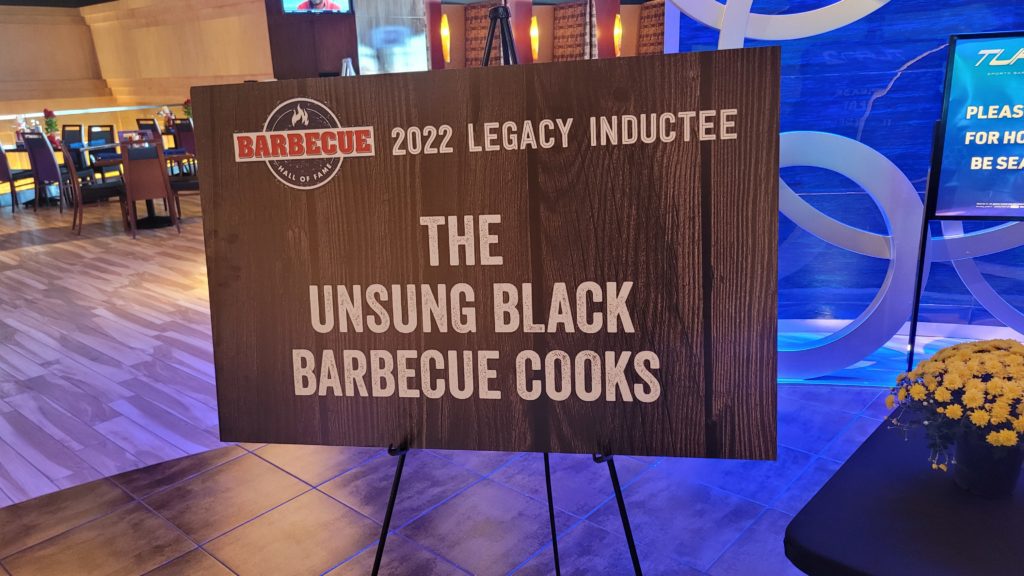
Last weekend, I got to do something very cool. I traveled to the Kansas Speedway where the 42nd American Royal World Series of Barbecue (one of the biggest barbecue contests in the world!) took place. During that event, the American Royal Barbecue Hall of Fame held its annual induction ceremony. For the first time, the Hall of Fame bestowed the “Impact Award,” and the first recipient is “Unsung Black Barbecue Cooks.”
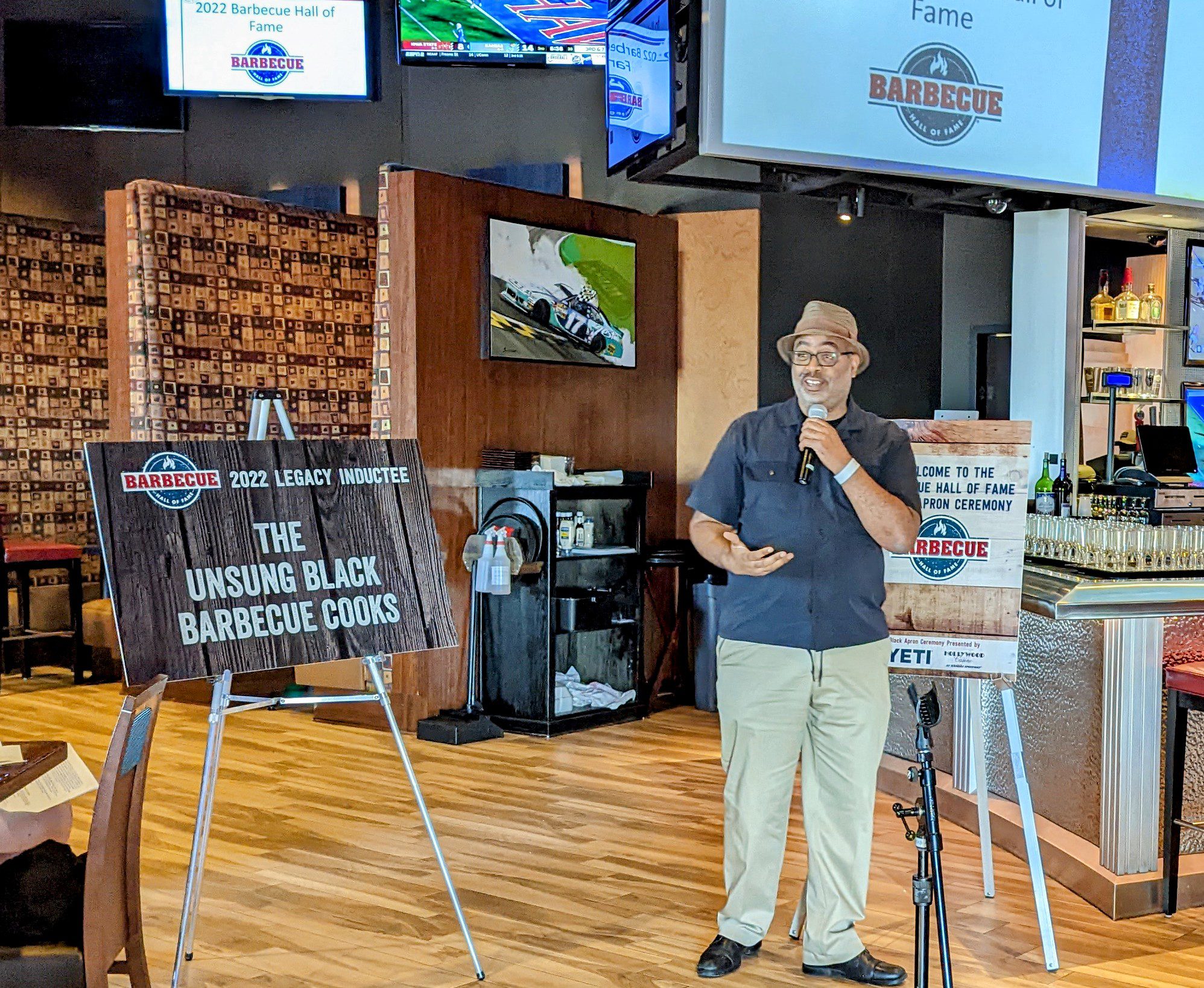
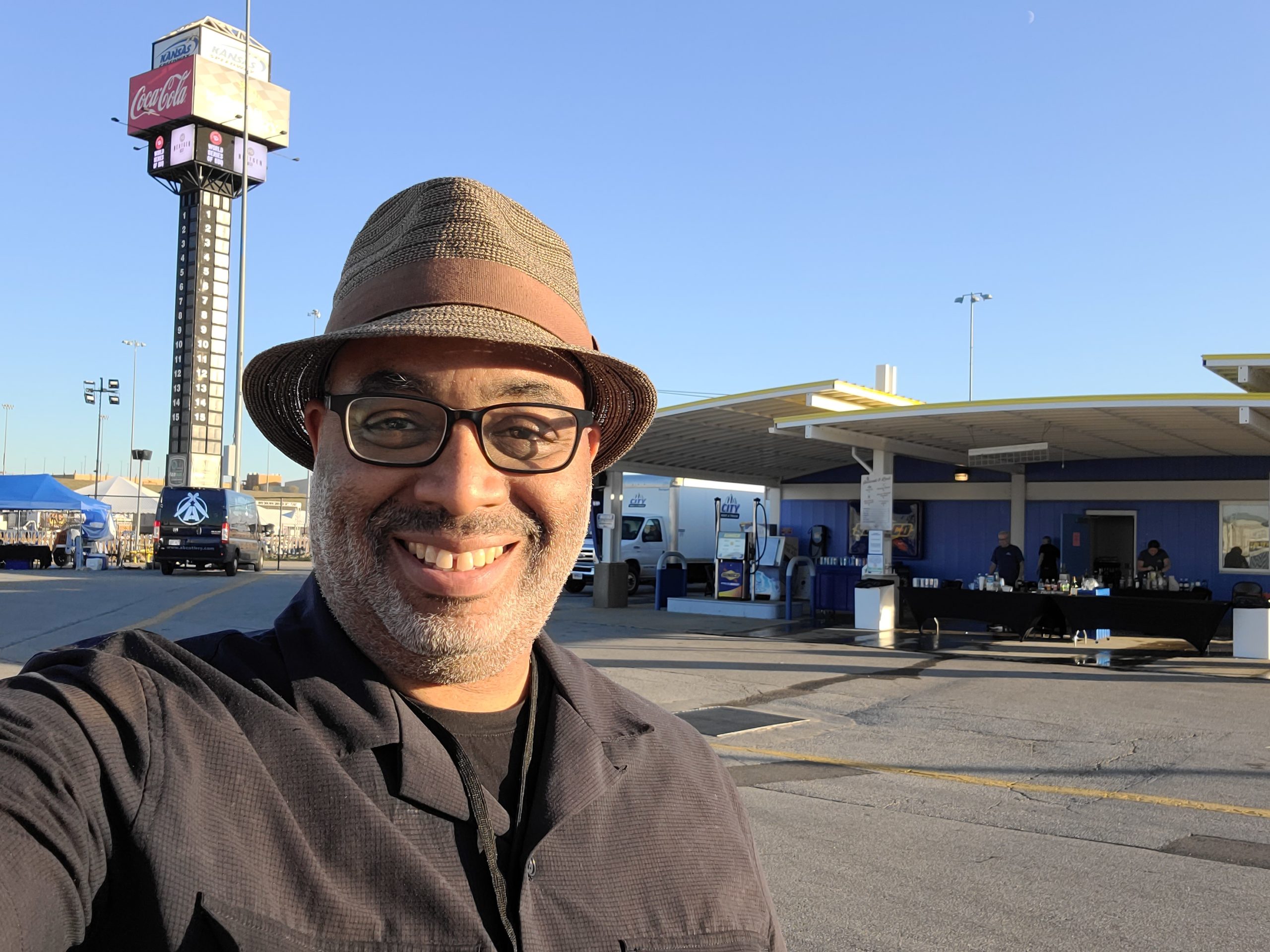
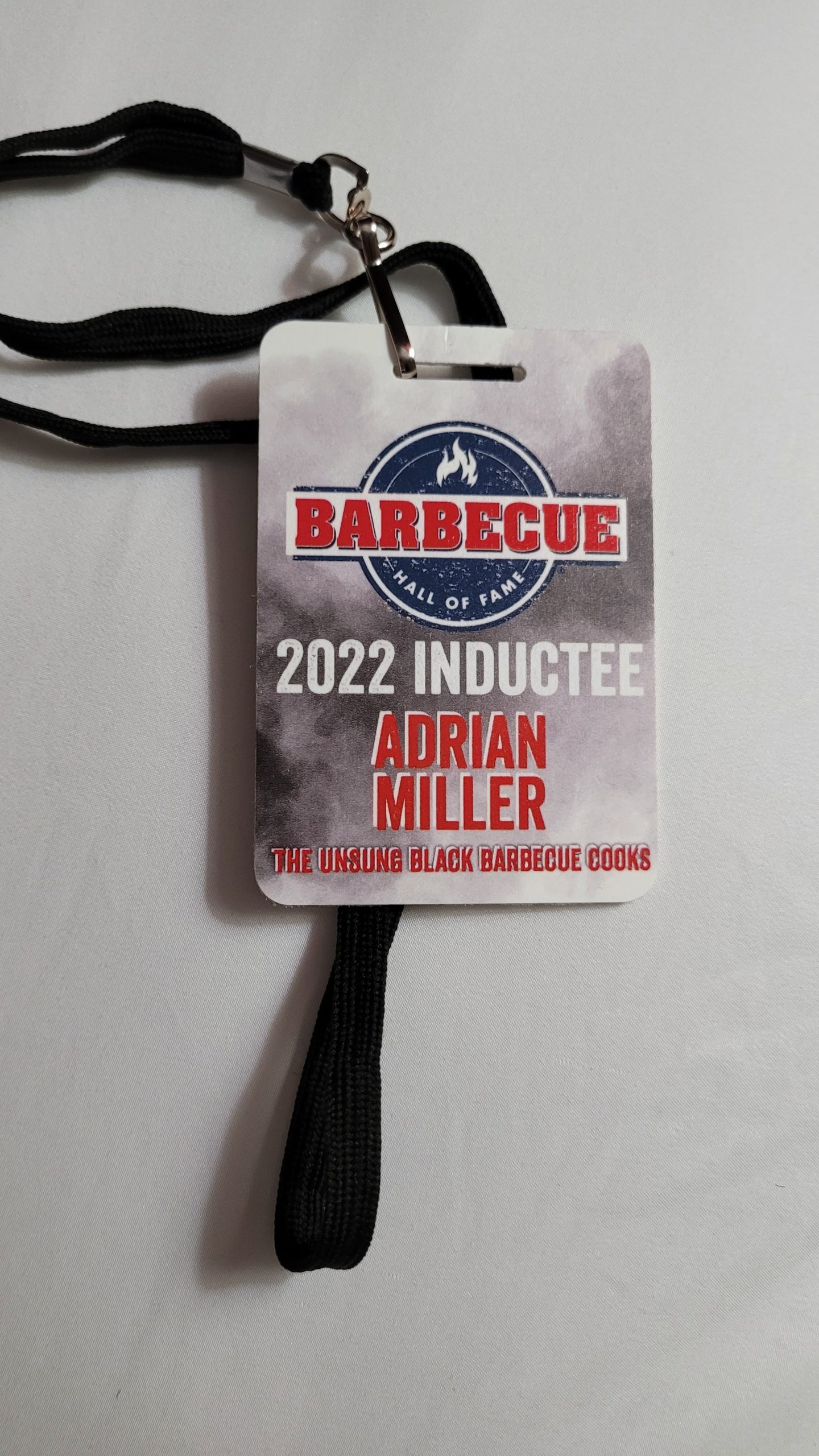
I was there to “accept” the award on behalf of the untold number of Black men and women who made barbecue and never got any credit. It was quite the honor and I thank the American Royal and my fellow members of the Barbecue Hall of Fame’s nominating committee who realized how important this acknowledgment is worked to make this award happen.
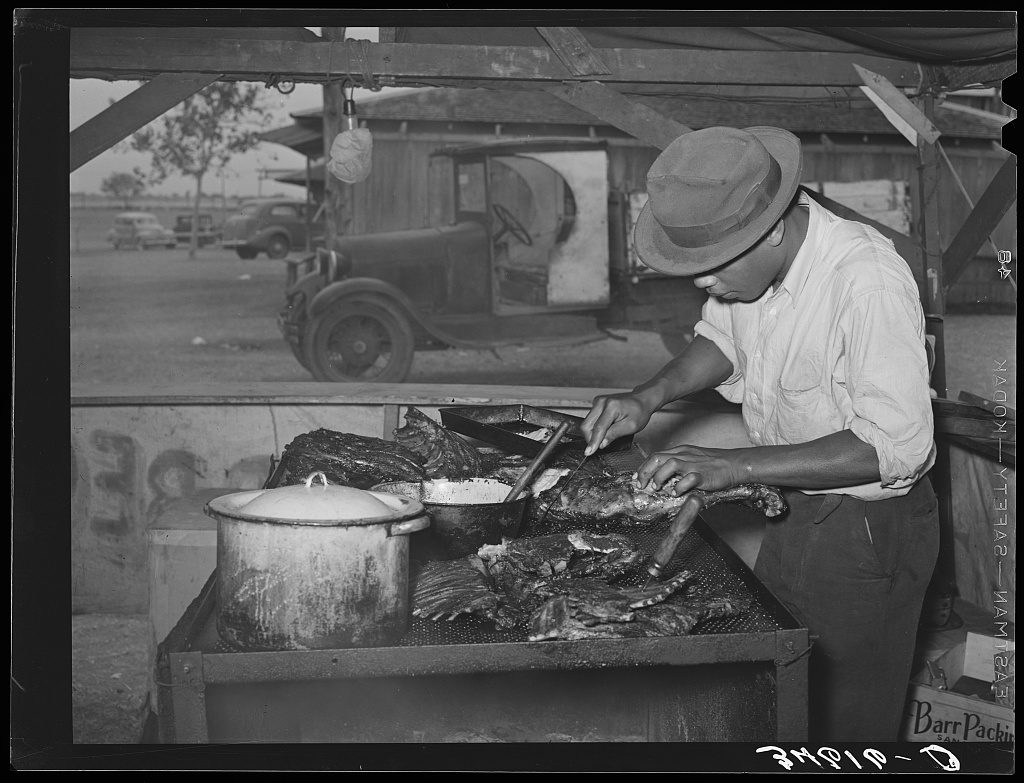
Here are the prepared remarks that I read during the induction ceremony. I thank Elizabeth Gunter of the American Royal for her help in drafting these remarks:
The Impact Award was created to honor a group of individuals for their “impact” to the world of barbecue as well providing a platform to recognize groups for their journey and life commitment. This award will also provide the opportunity to continue to educate on the history, legacy and groups of individuals that have worked to create the world of barbecue that we are able to experience today. The group will not be formally inducted into the Hall of Fame, rather the hall would like this opportunity to award and recognize what this group has done. The legacy award will be a perpetual award, not required to be given each year, but at the discretion of the committee to honor and give to a group.
The inaugural Impact Award is dedicated to all unsung black barbecue cooks whose contributions to the art of barbecue deserve to be remembered and memorialized. Many of these unknown pitmasters include talented cooks from the South during and after the Civil War who pioneered the barbecue of today.
Unfortunately, the names of many barbecue pioneers have been lost to history because they were deemed unworthy of having their full names reported. By the time of the Civil Ward, Southerners had been cooking barbecue for more than two centuries, and a great many of these cooks were enslaved African American slaves, who tended the pits at barbecues organized for the white community as well as at events for their own families and friends. After Emancipation, thousands of talented cooks in rural areas and small towns brought delight to generations of hungry people, across the country and around the world, who wanted a taste of southern pit barbecue. Sadly, their names didn’t make it into newspapers and other historical records. We may not know who they were, but we know they were there.
Enslaved pitmasters are the anonymous artisans of what many regard as the one true American cuisine–barbecue. A few of them, or their family descendants, may be known to us, but it was their collective toil under the harshest of conditions that established the template for the food we now celebrate. If we are what we eat, then those who make what we eat help define us as a people. The enslaved pitmasters are, in their way, roughly analogous to the unknown soldier. They should be recognized en masse so that their contributions to America are forever remembered and memorialized. This is an idea I’ve raised with other by members of the Hall of Fame nearly a year ago. I’m hopeful they, and you, will carry it forward.
They are self-evident. Without enslaved people specializing in this type of cooking, there would not be what we today call barbecue. This award is a small step towards affirming their humanity and acknowledging their culinary contribution to a cuisine that we all love.
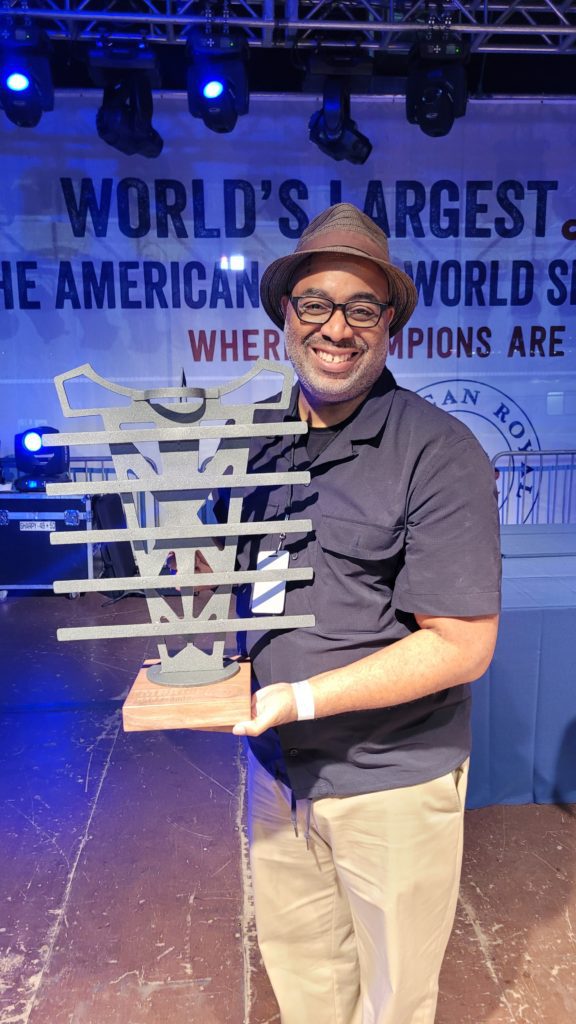
Great
Adrian; your scholarship & writings are the catalyst for this honor. Fitting that the unrecognized people are the recipients of inaugural award. We’ll done; congratulations.
Thanks, Gary! I really appreciate the note.